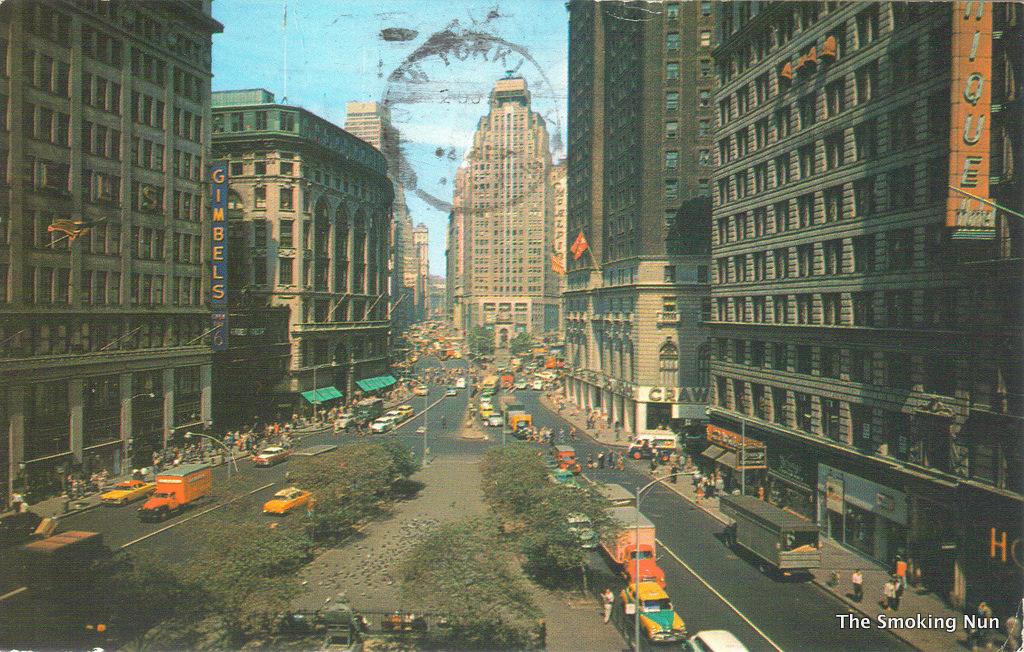Why Did Gimbels Department Store Close Down?
Why did Gimbels close? Gimbels, a once-iconic department store chain, closed its doors in 1987. The reasons for its demise are complex and multifaceted, but some of the key factors include:
Gimbels was founded in 1842 and quickly became a major player in the retail industry. By the early 20th century, it had stores in major cities across the United States. However, the company began to face challenges in the 1960s and 1970s, as suburban shopping malls began to draw customers away from downtown department stores. Gimbels was also hurt by competition from discount retailers such as Walmart and Kmart.
In an effort to stay competitive, Gimbels began to close stores and sell off its assets. However, these measures were not enough to save the company. In 1987, Gimbels filed for bankruptcy and closed all of its remaining stores.
The closing of Gimbels was a major blow to the retail industry. It was one of the oldest and most respected department store chains in the United States. Its demise is a reminder of the challenges that traditional retailers face in the modern era.
Why did Gimbels close?
Key Aspects
- Changing consumer shopping habits
- Competition from suburban shopping malls and discount retailers
- Inability to adapt to the changing retail landscape
Changing consumer shopping habits
- In the 1960s and 1970s, consumers began to shift their shopping habits away from downtown department stores and towards suburban shopping malls.
- Shopping malls offered a more convenient and pleasant shopping experience, with a wider variety of stores and restaurants.
- Gimbels was slow to adapt to this change in consumer behavior, and as a result, it lost market share to its competitors.
Competition from suburban shopping malls and discount retailers
- The rise of suburban shopping malls and discount retailers posed a major threat to traditional department stores like Gimbels.
- Shopping malls offered a more convenient and pleasant shopping experience, while discount retailers offered lower prices.
- Gimbels was unable to compete with these new competitors, and as a result, it lost market share.
Inability to adapt to the changing retail landscape
- Gimbels was slow to adapt to the changing retail landscape.
- The company failed to invest in new technologies and marketing strategies, and as a result, it fell behind its competitors.
- Gimbels also failed to develop a clear brand identity, and as a result, it struggled to differentiate itself from its competitors.
FAQs on "Why did Gimbels close?"
This section provides answers to frequently asked questions about the closing of Gimbels department store chain.
Question 1: When did Gimbels close?
Gimbels closed in 1987.
Question 2: Why did Gimbels close?
Gimbels closed due to a combination of factors, including changing consumer shopping habits, competition from suburban shopping malls and discount retailers, and the company's inability to adapt to the changing retail landscape.
Summary:
The closing of Gimbels was a major event in the retail industry. The company's failure to adapt to the changing retail landscape led to its demise. Gimbels' closing is a reminder of the challenges that traditional retailers face in the modern era.
Conclusion
The closing of Gimbels department store chain in 1987 was a major event in the retail industry. The company's failure to adapt to the changing retail landscape led to its demise. Gimbels' closing is a reminder of the challenges that traditional retailers face in the modern era.
The key factors that contributed to Gimbels' closing include changing consumer shopping habits, competition from suburban shopping malls and discount retailers, and the company's inability to adapt to the changing retail landscape. Gimbels was slow to adapt to the shift in consumer shopping habits towards suburban shopping malls, and it was unable to compete with the lower prices offered by discount retailers. The company also failed to invest in new technologies and marketing strategies, and it failed to develop a clear brand identity.
The closing of Gimbels is a reminder that even the most iconic companies can fall victim to changing market conditions. Traditional retailers need to be able to adapt to the changing retail landscape in order to survive. They need to invest in new technologies and marketing strategies, and they need to develop a clear brand identity. Only then can they hope to compete with the challenges of the modern retail environment.
Translate Old English Into Modern English: A Comprehensive Guide
Locate Your Driver's License Number: A Comprehensive Guide
Lay Lay's Age In 2024: Everything You Need To Know

